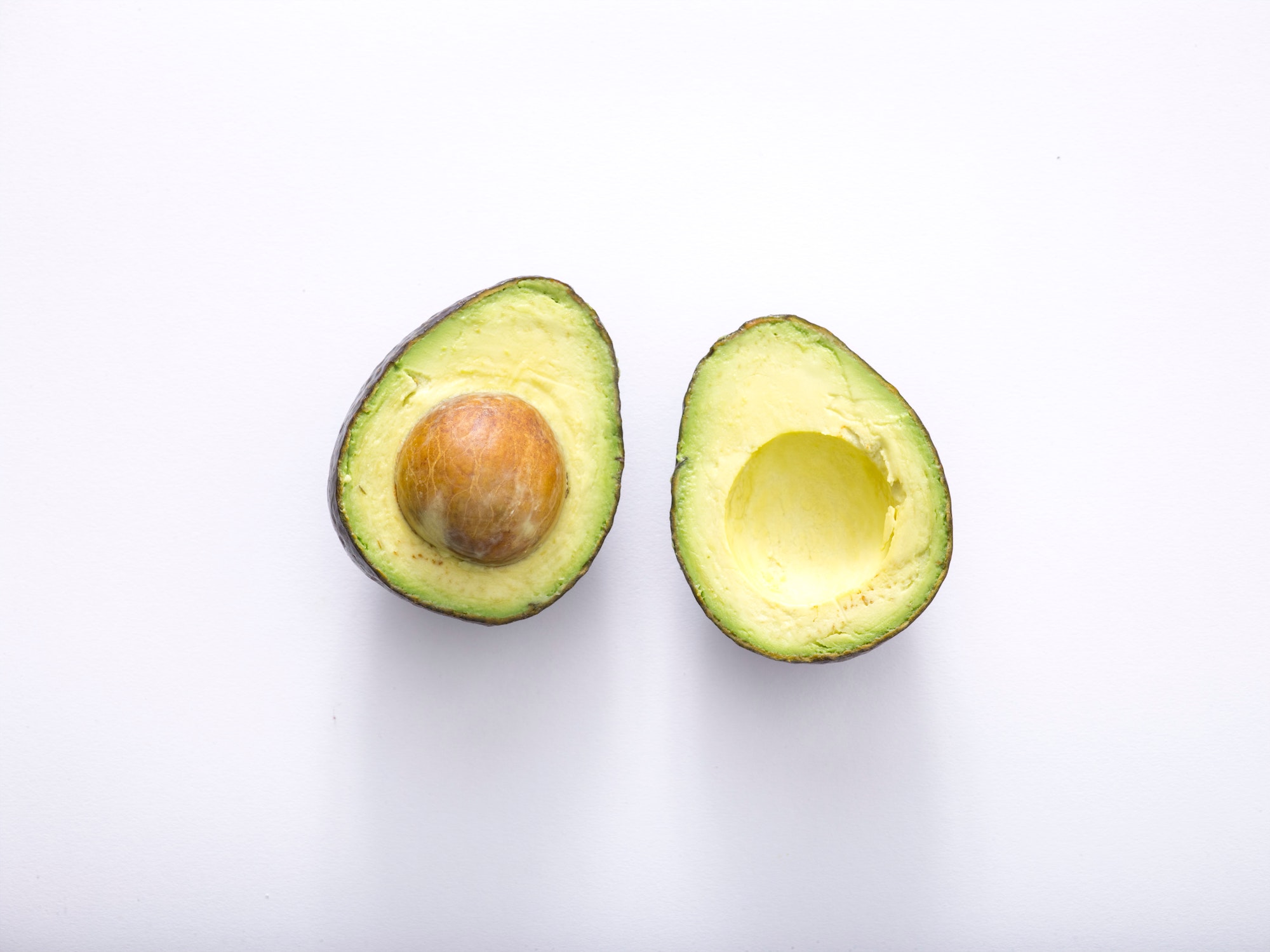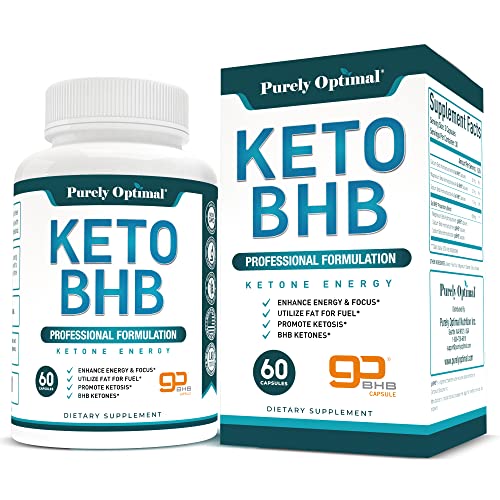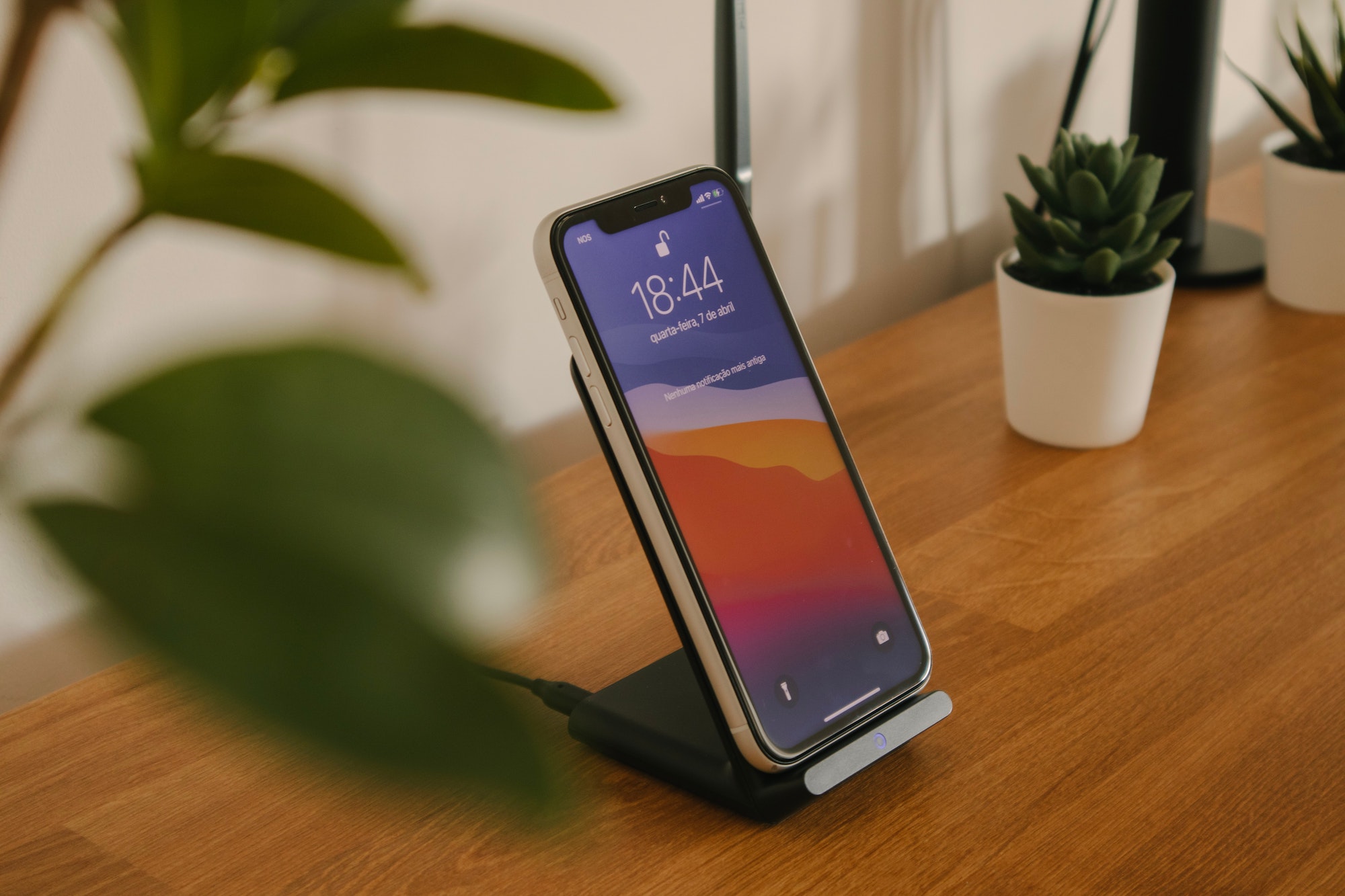If you’ve hit a weight or fat loss plateau— despite eating clean and exercising— more fat could be just what your body is asking for. The ketogenic diet, or “keto diet”, is a high-fat, low-carb approach to eating that can help your body accelerate it’s fat burning abilities. Although best known for its weight loss benefits, research shows the keto diet can also help skyrocket your energy levels, improve blood sugar balance, boost cognitive function, and much more.
So, how exactly does the keto diet work? Is it as simple as just adding more fat to your meals? In this keto diet guide, we’ll cover everything you need to know, including:
- How the keto diet works
- How to follow a keto diet correctly
- The health benefits you can expect to experience from going keto
- Foods to eat and avoid on the keto diet
- How to tell if your body is in ketosis
- If the keto diet is right for you.
[Check out some of our other awesome guides.]

10 Best Keto Supplements
Eat Fat To Burn Fat: What Is The Keto Diet And How Does It Work?
The keto diet is a high-fat, low-carb diet that allows your body to enter a fat-burning metabolic state called ketosis. When you enter ketosis, you burn fat for energy instead of glucose from carbohydrates— which are your body’s default energy source.
Now, your body will only start burning stored fat for fuel when glucose is not available— which is why carbs must be heavily restricted. We’re talking no more than five to ten percent of your diet. In this sense, heavily restricting carbs and increasing your dietary fat intake allows you to manipulate or “train” your body to burn fat for fuel. Let’s dive in a little deeper and look at the science behind how the keto diet works for fat loss.
As mentioned above, your body’s default source of energy comes from carbohydrates, which are broken down into glucose during digestion. From here, glucose is converted into glycogen and stored in your liver and muscle cells to be used for when you need energy later on. It’s said that you can store approximately 2,000 calories worth of carbohydrates, which is enough energy to last you around 24 hours. (1)
Since most of us get carbs at every meal from fruit, veggies, beans, grains, legumes (and perhaps the not-so healthy carbs, like chips, candy, and soda), we don’t need to be concerned about running low on glucose. However, let’s say there was a famine and you had absolutely no access to carbs. Do you just run out of energy? Heck no. As the highly intelligent system it is, your body has a backup “fuel tank” in place.
When glucose isn’t available, your body creates energy from it’s second preferred source: fatty acids (fat), from stored body fat and dietary fat. Through a process called ketogenesis, fatty acids get converted to ketones, which can then be released into the bloodstream and sent to the brain and muscle cells to be used for energy. When this occurs, you’ve entered what’s called a “ketotic state” or “ketosis”.
Unlike glucose stores that last a mere 24 hours, fat stores are plentiful. Your body can store enough fat for energy to last you several weeks. This is why people who practice intermittent fasting actually report increased energy levels despite not taking in any calories, and are able to safely go prolonged periods of time without eating. Of course, this also explains why the high fat keto diet can accelerate fat loss, as it “trains” your body to access stored fat and burn fatty acids for fuel, instead of relying on carbohydrates.
Although we’ve touched on weight loss, that’s certainly not the only health benefit of following the keto diet. In fact, if your body fat percentage is already low, the keto diet may not result in weight loss at all. So, why else is the keto diet worth trying? Let’s take a look.
[Check out this guide to coconut oil.]

Health Benefits Of The Keto Diet (Aside From Fat Loss)
Interesting enough, the keto diet wasn’t initially intended to be a weight loss solution. It’s history goes back to the 1920’s, where doctors began using it to help control seizures in epilepsy patients who weren’t responding well to medication. It was thought that removing the body’s primary fuel source could signal “pseudo” starvation, and inhibit the neuron pathways in the brain that were triggering seizures.
Today, studies show that the keto diet may be have several other benefits, such as correcting hormonal imbalances and reversing type 2 diabetes.
1. Improved Blood Sugar Balance (And Conditions Such as Type 2 Diabetes)
Blood sugar imbalances such as hypoglycemia, hyperglycemia, and type 2 diabetes are typically caused by lifestyle factors— namely, having an excess of refined sugar and carbohydrates in your diet (donuts, we’re looking at you).
We won’t get into the full breakdown of how blood sugar works in this article, but to simplify, having a blood sugar imbalance means that your cells have become “desensitized” or have stopped responding to insulin— which is the hormone that’s responsible for transporting sugar out of your bloodstream and into your cells. This is also known as insulin resistance, which can be a precursor to type 2 diabetes and heart disease.
Since the keto diet almost completely removes the problematic foods (in this case, refined sugar and carbohydrates), it gives your body a chance to “reset”, which may help regain and improve insulin sensitivity over time. Furthermore, fat is an excellent blood sugar balancing nutrient, which makes up approximately 75% of calories on the keto diet.
If you have a blood sugar imbalance, I highly recommend consulting with a qualified healthcare practitioner before making any dietary changes to see if the keto diet could be an appropriate short or long term solution for you.
2. Improved Focus and Concentration
With today’s fast-paced lifestyle and the fact that we’ve become multi-tasking machines, we could probably all use an extra boost of focus and concentration in our lives. A high fat diet may be the best way to achieve this. Your brain runs only on two nutrients for fuel: glucose and ketones. Previously, glucose was thought to be the best fuel for the brain, but research shows some ketones may actually produce more ATP (energy) than glucose— which would actually make fatty acids a more beneficial energy source.
The keto diet is also being studied for its effect on all aspects of cognitive function, including improving symptoms of neurodegenerative diseases, such as Alzheimer’s and Parkinson’s.
3. Reduced Appetite And Cravings for Sweets
As soon as you hear the word diet, what comes to mind? Starvation? Restriction? Misery? Yes, dieting is brutal, and can quickly send you into a downward chocolate cupcake spiral.
However, the keto diet is different from other diets for a few reasons. First, your appetite gets satisfied quickly. As the most dense macronutrient, fat offers nine calories per gram (whereas protein and carbohydrates come in at four calories per gram). Fat also take the longest to digest, and therefore keeps you full for longer periods of time. As mentioned, fats also promote blood sugar balance, which can also help curb cravings for sugar.
Let’s also not forget the flavor factor. Everything tastes better with butter, right? Fat is the ingredient used to add flavor food, so you can expect your keto recipes to still be tasty, flavorful, and satisfying, which may also curb cravings for junk food.
Also, there’s a huge variety of foods you can still eat on the keto diet, and probably some new ones (or at the very least, new delicious combinations) that you haven’t tried. Just do a quick “keto diet cookbook” search online and be prepared to wipe down some drool. Keto Avocado Benny’s and New York Keto Cheesecake are absolutely on the menu.
4. The Keto Diet May Improve Hormonal Balance
All of your hormones work so closely together, that when one hormone is negatively affected, the rest follow suit. Since the keto diet may help improve how insulin functions (the blood sugar regulating hormone), this can have a beneficial “domino” effect on all other hormones and simultaneously help correct other imbalances.Fats are also the building blocks of healthy hormones, and hormones control every aspect of your body’s functions, from mood to bowel movements. Low fat diets have been linked to symptoms in women such as hair loss, irregular menstrual periods, depression, anxiety, and nutrient deficiencies in the fat soluble vitamins, A, D, E and K, so for some women, increasing fat intake in general can be extremely beneficial.
[Check out this guide to the keto diet.]

How Much Fat Do You Need To Eat On The Keto Diet?
There are a few different variations of the keto diet, with the most common being the Standard Ketogenic Diet (SKD). Here are the ratios for the SGK, as well as three other versions.
The standard ketogenic diet: 5% carbs, 20% protein, and 75% fat.
This is the most popular version of the keto diet, and if you’re new to keto, this is the route I’d recommend going.
The high protein ketogenic diet: 5% carbs, 35% protein, and 60% fat. The high protein keto diet is most suitable if you’re an athlete.
The cyclical ketogenic diet: 5 days of SKD (5% carbs, 20% protein, and 75% fat) followed by 2 days of 70% carbohydrates, 25% protein, and 5% calories from fat.
The targeted ketogenic diet: this diet combines the standard ketogenic diet and cyclical ketogenic diet in a way by incorporating 25-50 grams net carbs 30-60 min before exercise.
How To Tell If Your Body Is In Ketosis
How can you tell if you’re well on your way to achieving desired results? There are a few different symptoms that may indicate that your body is in Ketosis. As mentioned above, a clear mental state and an increase in energy are two benefits of consuming healthy, high-fat foods. Another indicator is a lack of or decrease in hunger as your body is no longer relying on carbohydrate stores. If you want to be sure you’ve raised ketone levels, you can test ketosis through blood meters, breath testing, or urine tests. I’d recommend the at-home urine strip testing as it’s a common and easy way to test ketosis. (2, 3)
Foods To Eat On The Keto Diet
Almost every variation of this diet emphasizes high-fat foods. Some things you can incorporate into each meal/snack include cocoa butter, lard, poultry fat, and plant fats like olive and coconut oils. You’re also encouraged to eat foods like avocado, coconut meat, and certain nuts and seeds. In terms of meat consumption, you ideally limit yourself to grass-fed beef and free range poultry. Make sure to get your greens each day by consuming non-starchy vegetables like leafy greens.
Foods To Avoid On The Keto Diet
As we’ve seen above, the cyclical diet is the only ketogenic diet where you’ll be consuming more than 50 grams of carbohydrates per day. That being said, whole/refined grains and flower products should be avoided as much as possible. Although some fruits like berries may be consumed in small portions, most fruits will not be approved for this diet and fruit juice should be avoided. Legumes like beans, lentils, and peanuts are also not allowed as a part of the ketogenic diet. (4)

Helpful Keto Diet Supplements
As you transition to this new lifestyle, it’s not uncommon to experience some unpleasant symptoms from your new high-fat diet. The keto diet can be hard on the digestive system; the most common complaint is digestion issues upon starting the diet. To avoid uncomfortable symptoms, digestive supplements are recommended.
Many foods that are rich in magnesium are carbs, making it even-harder for you to meet your magnesium needs. It’s recommended that you take a 200-400mg magnesium supplement each day. Magnesium can also help with some common symptoms from starting the ketogenic diet like muscle cramps or inability to sleep. In addition to magnesium, your body will likely be lacking sodium and potassium. It’s important to incorporate salt into your meals and dark, leafy greens can help with magnesium and potassium. There are also electrolyte supplements that contain magnesium, potassium, and sodium to help your body get the minerals it needs! (5)
Is The Keto Diet Safe For Everyone? Here’s Who Should Avoid The Keto Diet
If you’re diabetic and take insulin or oral hypoglycemic agents, it’s important you talk to your doctor first and have your medications properly adjusted before starting the ketogenic diet. Those who suffer from pancreatitis, liver failure, and disorders of fat metabolism should avoid the diet altogether. As always, if you think this diet could negatively impact your health, it’s important to speak to a healthcare professional before starting. (6)
How Does A Keto Diet Work?
A keto diet works by forcing the body to burn fat for energy instead of carbohydrates. This is done by severely restricting carbohydrate intake and replacing it with fat. By doing this, the body enters a state called ketosis, where it becomes incredibly efficient at burning fat for energy.
The benefits of a keto diet are numerous, including weight loss, increased energy levels, and improved mental clarity. Additionally, ketosis has been shown to have therapeutic benefits for a variety of health conditions such as epilepsy, Alzheimer’s disease, and cancer.
If you’re interested in trying a keto diet, there are a few things you should know before getting started. First, it’s important to understand how the diet works and what you can and cannot eat. Second, you need to make sure you’re getting enough protein and fat to meet your energy needs, as well as the right mix of nutrients. Finally, you need to be prepared for potential side effects, such as the “keto flu,” which can occur when your body is adjusting to the new diet.
With a little knowledge and planning, a keto diet can be a healthy and sustainable way to improve your overall health.

Is A Keto Diet Healthy?
When it comes to a keto diet being healthy, there are a lot of misconceptions out there. So let’s set the record straight: a keto diet is not only healthy, but can also be very beneficial for those looking to lose weight or improve their overall health.
The keto diet is a low-carb, high-fat diet that has been shown to help people lose weight and improve their health. Unlike other low-carb diets, the keto diet does not restrict calories, and instead focuses on eating healthy fats and proteins. This allows your body to burn fat for energy, rather than carbs.
There are many health benefits associated with the keto diet, including weight loss, improved mental clarity and focus, reduced inflammation, and improved blood sugar levels. Additionally, the keto diet has been shown to help treat conditions like epilepsy and Alzheimer’s disease.
If you’re considering starting a keto diet, be sure to speak with your doctor first to ensure it’s the right decision for you. And remember, as with any diet, there are some risks involved. But when done correctly, the keto diet can be a healthy and effective way to improve your overall health.
Is Keto Good For Weight Loss?
There is no one-size-fits-all answer to this question, as the ketogenic diet may or may not be suitable for individuals depending on their unique weight loss goals and health conditions. However, many people do find that the keto diet is an effective way to lose weight, and research has shown that it can be particularly helpful for those who are obese or have type 2 diabetes. If you’re considering starting the keto diet, it’s important to speak with your doctor first to make sure it’s right for you.
What Are The Benefits Of A Keto Diet?
The keto diet has become increasingly popular in recent years, and for good reason. This low-carb, high-fat diet has been shown to offer a variety of health benefits, including weight loss, improved mental clarity and decreased inflammation.
One of the biggest advantages of the keto diet is that it can help you lose weight quickly and effectively. By cutting out carbs and increasing your fat intake, your body enters a state of ketosis, which causes it to burn fat for energy instead of glucose. This process not only helps you lose weight, but also helps to improve your overall health.
In addition to helping with weight loss, the keto diet has also been shown to boost mental clarity and focus. This is likely due to the increased intake of healthy fats, which can help to support brain health. The keto diet has also been shown to decrease inflammation throughout the body, which can lead to a variety of other health benefits.
If you’re looking for a healthy and effective way to lose weight, the keto diet is a great option. With its many potential health benefits, it’s no wonder this diet is becoming so popular.

What Is Ketosis?
Ketosis is a state in which your body uses ketones for energy, rather than glucose. It’s a metabolic process that occurs when you limit your carb intake and consume more fat. When your body doesn’t have enough glucose for energy, it starts to burn stored fat for fuel. This process produces ketones, which are molecules that can be used for energy by your cells.
There are several benefits of being in ketosis, including weight loss, increased energy levels, and improved mental clarity. Ketosis is also thought to have anti-inflammatory effects.
If you’re interested in trying ketosis, there are a few things you can do to get started. First, you’ll need to make sure you’re eating a high-fat, low-carb diet. Then, you can try a ketogenic supplement to help you get into ketosis. Finally, you can test your ketone levels using a blood or urine test.
What Are Keto Side Effects?
As with any new diet or lifestyle change, there can be some side effects associated with the keto diet. These are usually temporary and can be easily managed.
The most common side effect is the “keto flu.” This is a general term used to describe the flu-like symptoms that some people experience when they first start the diet. Symptoms can include fatigue, headaches, brain fog, and nausea.
Most of these symptoms are caused by the body’s adjustment to burning fat for fuel instead of carbohydrates. They typically go away after a few days or weeks as the body becomes more efficient at using fat for energy.
There are a few other potential side effects that have been reported with the keto diet, but they are more rare. These include constipation, bad breath, and decreased exercise performance.
Overall, the keto diet is safe for most people. However, it’s important to talk to your doctor before starting any new diet, especially if you have any medical conditions or take medications that could be affected by the diet.

How To Get Into Ketosis
There are a few different ways to reach ketosis, but the most common and effective method is through carb restriction. In order to enter ketosis, you need to reduce your carb intake to less than 50 grams per day. This can be accomplished by following a low-carb diet or by intermittent fasting.
If you’re following a low-carb diet, you’ll need to make sure that you’re eating mostly healthy fats and proteins. Good sources of fat include nuts, avocados, olive oil, and coconut oil. Good sources of protein include eggs, chicken, fish, and legumes.You should also be getting some fiber from leafy green vegetables and low-carb fruits like berries.
If you’re doing intermittent fasting, you’ll need to fast for at least 16 hours per day. This can be done by skipping breakfast and only eating lunch and dinner, or by fasting for 24 hours once or twice per week. During your fasting periods, you should still be getting plenty of healthy fats and proteins.
Reaching ketosis takes some effort, but it’s well worth it for the many benefits that come with it. Once you’re in ketosis, you’ll have more energy, better mental clarity, and improved weight loss results.
The Keto Flu
Keto flu is a common side effect of the ketogenic diet. It typically occurs in the first few days after starting the diet and can last for a few weeks. Keto flu symptoms include fatigue, headaches, brain fog, and cravings for carbohydrates.
While keto flu is not dangerous, it can be unpleasant and make it difficult to stick to the diet. There are several ways to mitigate keto flu symptoms, including electrolyte supplementation and increasing water intake.
Keto flu is a common side effect of the ketogenic diet. It typically occurs in the first few days after starting the diet and can last for a few weeks. Keto flu symptoms include fatigue, headaches, brain fog, and cravings for carbohydrates.
While keto flu is not dangerous, it can be unpleasant and make it difficult to stick to the diet. There are several ways to mitigate keto flu symptoms, including electrolyte supplementation and increasing water intake.

Common Side Effects Of A Keto Diet
The ketogenic diet has become increasingly popular in recent years. This high-fat, low-carbohydrate eating plan has been shown to help with weight loss and other health conditions.
However, the diet is not without its side effects. Common side effects of a keto diet include constipation, headaches, bad breath, and fatigue. These side effects are usually mild and temporary. However, some people may experience more serious side effects, such as kidney stones or increased cholesterol levels.
If you are thinking about starting a keto diet, it is important to talk to your doctor first. They can help you understand the risks and benefits of the diet and determine if it is right for you.
Different Types Of Keto Diets
There are different types of keto diets that you can follow, depending on your goals and lifestyle. The most popular type of keto diet is the Standard Ketogenic Diet (SKD), which is a very low-carb, high-fat diet. This type of keto diet is often used to treat epilepsy in children.
Another popular type of keto diet is the Cyclical Ketogenic Diet (CKD), which is a lower-carb, high-fat diet that includes periods of higher carb intake. This type of keto diet is often used by bodybuilders or athletes who need to bulk up quickly.
The third type of keto diet is the Targeted Ketogenic Diet (TKD), which is a low-carb, high-fat diet that includes strategic carb intake around workouts. This type of keto diet is often used by athletes who want to improve their performance.
Finally, the fourth type of keto diet is the High-Protein Ketogenic Diet (HPKD), which is a low-carb, high-protein diet. This type of keto diet is often used by people who want to build muscle mass.
Which type of keto diet you choose to follow will depend on your goals and lifestyle. If you want to lose weight quickly, then the SKD is a good option. If you want to bulk up quickly, then the CKD is a good option. If you want to improve your athletic performance, then the TKD is a good option. And if you want to build muscle mass, then the HPKD is a good option. Whichever type of keto diet you choose, make sure that you consult with a doctor or registered dietitian before starting, as there are some health risks associated with these diets.
Other Factors To Consider
If you follow a keto meal plan, your blood pressure will likely fall in line, as keto-friendly foods are intrinsically healthy. As America falls deeper into the obesity epidemic, we should all be watching our triglycerides – and opting for sweeteners that aren’t sugar.
Beginners to the keto diet will also experience immediate short-term gains, which helps them stay motivated. As the science has also shown, LDL levels are not worth worrying about – instead particle size and density are what actually matter.
Diabetic ketoacidosis is different than a keto diet (sometimes called an Atkins diet, though there are key differences. A typical keto meal for someone of normal body weight will include steak, butter, and lots of other tasty foods.
Many people like keto because the typical diet plan (which may be limited in grams of carbs), is quite delicious. If you’re worried about cardiovascular disease, a high sugar diet will not do you any favors.
Low carb foods will help stabilize your blood sugar, and upping your protein intake will help to build muscle. A low-carbohydrate diet is also good for many other biomarkers of health, and tasty veggies like brussels sprouts will help keep your HDL in check.
There are a few small risk factors when it comes to keto (mostly micronutrients which could be low over time), but as more ketone bodies are in circulation, you’ll likely feel better than you ever have on any other type of diet.
The Bottom Line On The Keto Diet
If you keep insulin levels low, your body will start to operate more optimally. A keto approach has taken off because – quite simply – it works.
We love the keto diet, as long as it is performed correctly – so don’t cut any corners. And if you liked this in-depth guide, be sure to check out some of our other comprehensive articles.













